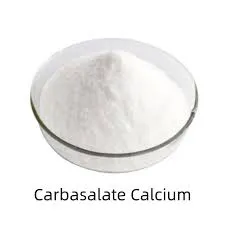- Afrikaans
- Albanian
- Amharic
- Arabic
- Armenian
- Azerbaijani
- Basque
- Belarusian
- Bengali
- Bosnian
- Bulgarian
- Catalan
- Cebuano
- Corsican
- Croatian
- Czech
- Danish
- Dutch
- English
- Esperanto
- Estonian
- Finnish
- French
- Frisian
- Galician
- Georgian
- German
- Greek
- Gujarati
- Haitian Creole
- hausa
- hawaiian
- Hebrew
- Hindi
- Miao
- Hungarian
- Icelandic
- igbo
- Indonesian
- irish
- Italian
- Japanese
- Javanese
- Kannada
- kazakh
- Khmer
- Rwandese
- Korean
- Kurdish
- Kyrgyz
- Lao
- Latin
- Latvian
- Lithuanian
- Luxembourgish
- Macedonian
- Malgashi
- Malay
- Malayalam
- Maltese
- Maori
- Marathi
- Mongolian
- Myanmar
- Nepali
- Norwegian
- Norwegian
- Occitan
- Pashto
- Persian
- Polish
- Portuguese
- Punjabi
- Romanian
- Russian
- Samoan
- Scottish Gaelic
- Serbian
- Sesotho
- Shona
- Sindhi
- Sinhala
- Slovak
- Slovenian
- Somali
- Spanish
- Sundanese
- Swahili
- Swedish
- Tagalog
- Tajik
- Tamil
- Tatar
- Telugu
- Thai
- Turkish
- Turkmen
- Ukrainian
- Urdu
- Uighur
- Uzbek
- Vietnamese
- Welsh
- Bantu
- Yiddish
- Yoruba
- Zulu
Dhj . 20, 2024 18:13 Back to list
Albendazole Oral Suspension for Effective Treatment of Parasitic Infections in Patients
Albendazole Oral Suspension A Comprehensive Overview
Albendazole is a synthetic broad-spectrum anthelmintic agent that is widely used in the treatment of various parasitic infections. This medication is particularly effective against a range of helminth infections such as those caused by roundworms, hookworms, and tapeworms, as well as certain protozoan diseases. The oral suspension formulation of albendazole provides a flexible and convenient dosing option, especially for pediatric patients or individuals who have difficulty swallowing tablets.
Mechanism of Action
Albendazole works by inhibiting the polymerization of tubulin into microtubules, which disrupts the cytoskeleton structure of the parasite. This leads to impaired glucose uptake and depletion of the glycogen reserves in the parasites, ultimately resulting in their death. The drug is effective against both adult and larval forms of the parasites, making it a versatile treatment option.
Indications
Albendazole is indicated for the treatment of a wide variety of infections. These include
1. Nematodes Such as ascariasis (roundworm), enterobiasis (pinworm), and hookworm infections. 2. Cestodes Such as taeniasis and echinococcosis (hydatid disease). 3. Protozoal Infections For example, giardiasis, in specific cases.
The use of albendazole is essential in regions where these parasitic infections are prevalent, contributing significantly to public health by reducing morbidity associated with these diseases
.Dosage and Administration
albendazole oral suspension

Albendazole oral suspension is typically administered after a meal to enhance its absorption. The dosing regimen varies based on the type of infection being treated. For instance, a common dose for children might be 10-15 mg/kg body weight, with a maximum daily dose not exceeding 400 mg for adults. The treatment duration may range from a single dose to multiple days, depending on the severity and type of the infection.
This formulation is particularly advantageous for young children or individuals who may struggle to ingest solid dosage forms. The suspension can be easily measured and administered using a dosing syringe, ensuring accurate dosing.
Side Effects and Precautions
While albendazole is generally well-tolerated, some patients may experience side effects. Common adverse effects include gastrointestinal disturbances such as nausea, vomiting, and abdominal pain. In rare cases, more severe reactions such as liver enzyme elevations can occur, necessitating the monitoring of liver function tests during prolonged treatment.
It is essential to inform healthcare professionals about any existing liver conditions, as adjustment of the dosage may be required. Furthermore, pregnant women should avoid albendazole unless the potential benefits outweigh the risks, as the drug may cause fetal harm.
Conclusion
Albendazole oral suspension is a valuable tool in combating parasitic infections, particularly in vulnerable populations such as children. Its flexible administration and broad-spectrum efficacy make it a critical component of antiparasitic therapy. Ongoing research and public health initiatives continue to advocate for its use in areas affected by parasitic diseases, thereby contributing to improved health outcomes and quality of life for millions of individuals worldwide.
In conclusion, albendazole oral suspension represents a significant advancement in the management of parasitic infections, offering both efficacy and safety when used appropriately. As healthcare providers continue to prioritize the eradication of these infections, albendazole remains a cornerstone in therapeutic strategies.
-
Guide to Oxytetracycline Injection
NewsMar.27,2025
-
Guide to Colistin Sulphate
NewsMar.27,2025
-
Gentamicin Sulfate: Uses, Price, And Key Information
NewsMar.27,2025
-
Enrofloxacin Injection: Uses, Price, And Supplier Information
NewsMar.27,2025
-
Dexamethasone Sodium Phosphate Injection: Uses, Price, And Key Information
NewsMar.27,2025
-
Albendazole Tablet: Uses, Dosage, Cost, And Key Information
NewsMar.27,2025













